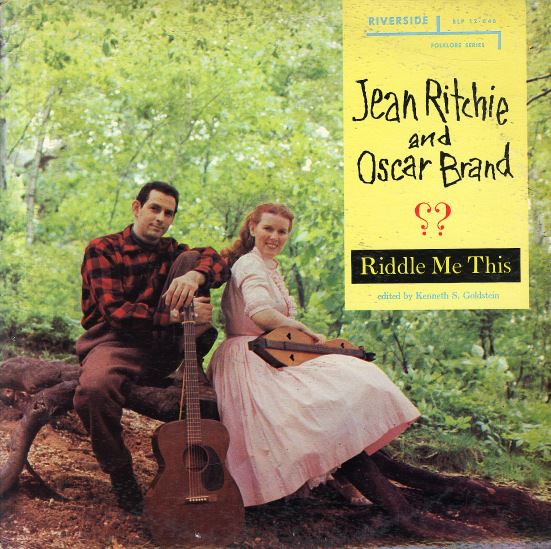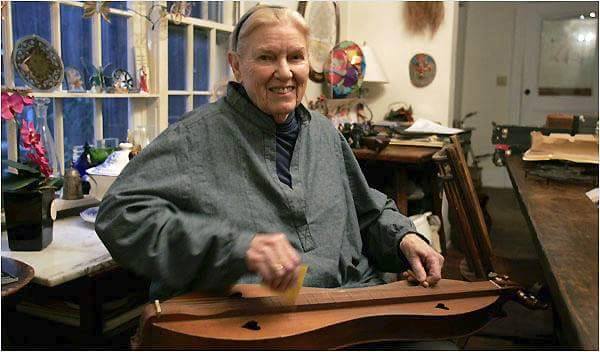
BY PAUL DERIENZO | Jean Ritchie, an original Village folkie and Appalachian songstress known as the “Mother of Folk,” died on June 1 at the age of 92.
Together with her late husband, George Pickow, she turned the dulcimer, a string instrument played on the lap, from a folk music oddity into an international phenomenon, producing them in a workshop under the Williamsburg Bridge. But her albums, films, books and recordings also introduced traditional American folk music to a legion of aspiring young musicians, including a young Bob Dylan — who credited Ritchie as one of his influences, along with Woody Guthrie, Big Bill Broonzy and Lead Belly.
The tall, red-haired Richie was born in 1922 in Viper, Kentucky. She was the youngest of 14 children from an old American family of “ballad-singers.” She began her career singing at dances and county fairs in the coal-mining country of eastern Kentucky.
The Ritchie family, big and boisterous, descendants of American revolutionaries and confederates alike, believed strongly in education, and she attended Cumberland College, graduating as a teacher. After World War II, Ritchie moved to New York City where she met her future husband while a social worker at the Henry Street Settlement. Famed American folklorist Alan Lomax introduced her to Pickow, a photographer and documentary filmmaker, at a square dance held at the settlement.
Lomax recorded and interviewed thousands of folk musicians in the United States and abroad, recording Ritchie extensively for the Library of Congress American folk music collection. Many of the recordings occurred at jam sessions in Lomax’s West Village apartment.
Ritchie met folksinger and WNYC radio host Oscar Brand in 1949 through Lomax as well. Brand immediately put her on his weekly radio show, which he still hosts every Sunday on WNYC. Ritchie, Pickow and Brand became fast friends, traveling through Europe together in search of new songs. Ritchie appeared more than any other guest on Brand’s show, “Folksong Festival.” They lived near each other in Port Washington, Long Island, for years.
Ritchie was renowned for her parties where celebrities and the not-so-famous could mingle, listen to music and have fun. At these informal get-togethers, she often sang with Pete Seeger, Odetta and Doc Watson. Her goddaughter, Jeannie Brand DeRienzo, also this writer’s sister-in-law, remembers Ritchie’s “sharp wit and high, trilling laugh” and her “love of company.”
“I see folk music as a river that never stopped flowing,” she told The New York Times in 1980. “Sometimes a few people go to it and sometimes a lot of people do. But it’s always there.”
Jean Ritchie was also an activist on behalf of coal miners living under scandalously poor conditions in the Cumberland Mountains. She sang in a haunting soprano voice about death in the coal mines and the environmental and economic devastation wrought by mining companies. Her song “West Virginia Mine Disaster” told about how a negligent coal company caused the death by drowning of four young married coal miners in 1968. Her song “Blackwater” told about the devastation of mountaintop-removal coal mining.
George Pickow died in 2010 and Jean Ritchie retired to Berea, Kentucky. She is survived by two sons. A tribute is planned for New York later this year.






































